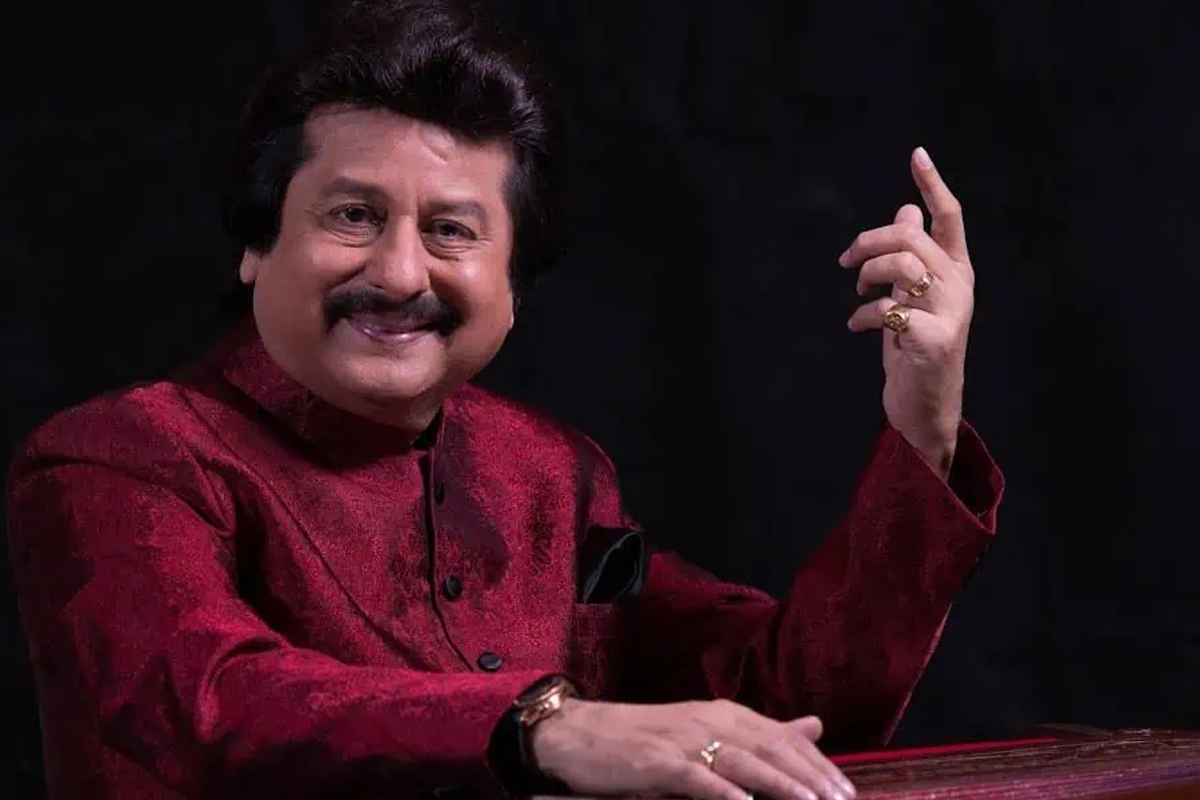The passing of Pankaj Udhas, the renowned ghazal singer and recipient of the Padma Shri award, has left a profound void in the hearts of countless admirers worldwide. At the age of 72, Udhas breathed his last on Monday at Mumbai’s Breach Candy hospital, where he had been admitted.
Pankaj Udhas began his journey following the footsteps of Mehdi Hasan and Jagjit Singh and made his debut in India’s film industry in 1972 as a playback singer for the movie Kaamna. His popularity as a ghazal singer rose when he released his first album on the cusp of 1980, titled Aahat. His heartfelt voice and contemporary methodology of mixing current melodic components into conventional ghazal pieces made him significant and popular among the ordinary masses, especially the youth. This classical art form instead of being confined to the elite minority, became more open and pertinent to everyone.
Advertisement
Breaking away from the classical format, he liberated the romantic form from Persianized Urdu to convey their pain in a simple verse like Deewaron Se Milkar Rona (1981) and tweaked the plaintive orchestration in Mohe Ayi Na Jag Se Laaj (1988).
Udhas’s ghazals were on the verge of becoming a cornerstone of many Bollywood films after his career took off in earnest in 1986, when he sang several tracks in Naam, a blockbuster Hindi crime thriller. One of his most successful songs is, Chitthi Aayee Hai, which was addressed to the Indian diaspora in the film, but such is the verve in Udhas’s voice that Anand Bakshi’s lines became the epitome of every migrant’s yearning for his or her home.
His voice began to be the cornerstone of Bollywood with his songs, Panchhi Pinjra Tod Ke Aaja and Desh Paraya Chhod Ke Aaja, both released in 1993.
It was because of the song, Purab Na Jaiyo Paschhim Na Jaiyyo (Jawaab, 1985) that made him a household name after he had already knocked at young hearts. He then for the first time, himself composed the music and rendered his popular number, Chandi Jaisa Rang Hai Tera (Ek Hi Maqsad, 1988). The same year, he sang the popular duet, Aaj Phir Tumpe Pyar Aaya Hai with Anuradha Paudwal for Feroz Khan’s Dayavan. Another unforgettable heartfelt ditty that continues to evoke pain is Jeeye To Jeeyen Kaise that he rendered for Nadeem Shravan in Saajan (1991). His voice could engage the connoisseur as well as the aesthete in a truck driver. We all have covered many miles listening to a bus driver playing Na Kajre Ki Dhaar (Mohra, 1994) on his rickety cassette player.
He later in 2001 organised a music festival named ‘Khazana’ that encouraged and gave opportunities to fresh talents. He even donated all the profits from the music festival for the treatment of cancer patients and to children suffering from thalassemia.
The loss of Pankaj Udhas not only echoes within the arena of ghazal singers but also resonates deeply among ordinary people. Throughout his illustrious career, Udhas popularised the genre of ghazals, making its enchanting melodies and poignant lyrics accessible to audiences from all walks of life. His departure marks not just the end of a remarkable musical journey but also leaves behind an enduring legacy that will continue to inspire and captivate generations to come.
